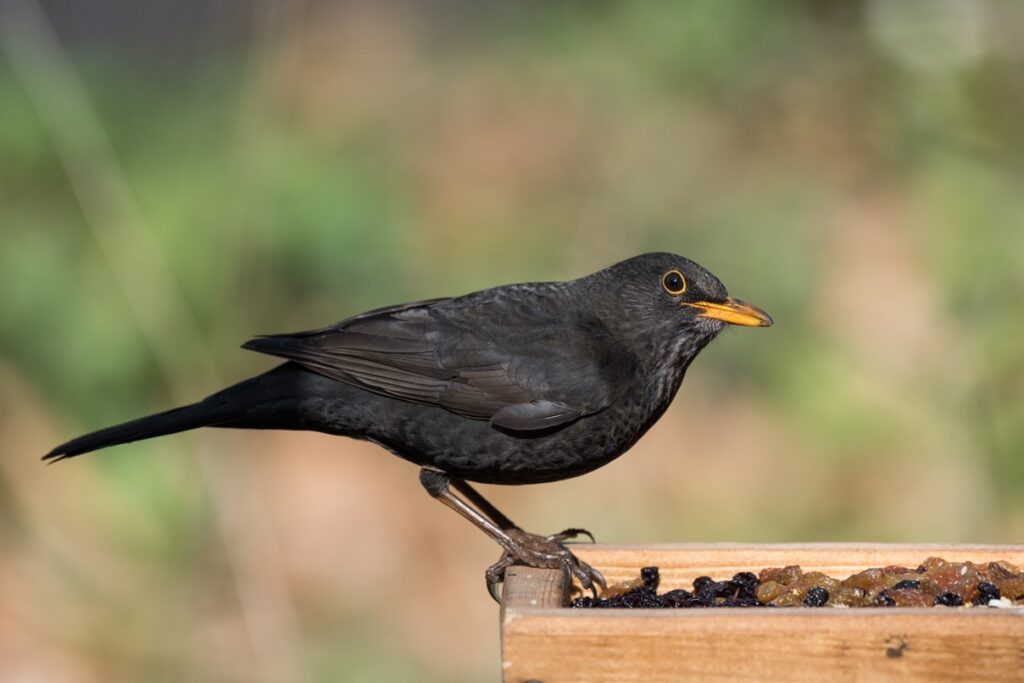What a joy it is to spend some time feeding the stunning birds that cross your yard from time to time! And how amazing it is that you’re taking the time to provide them with additional food sources and, most importantly, to understand whether the snacks are healthy or can harm these beautiful creatures.
The topic of our today’s discussion is whether birds can and will eat raisins. The short answer is yes, birds can eat raisins and will definitely enjoy them!
However, as it happens with most things, the short answer doesn’t suffice. There are some things to consider if you decide to give your garden birds or the wild birds in your area some raisins. Read on to discover more!
Can Birds Eat Raisins?
Both garden and wild birds can eat raisins. Besides being tasty snacks for birds, raisins are packed with lots of vitamins and minerals a bird’s body benefits from.
First, raisins are an excellent source of carbohydrates birds require for staying healthy. Secondly, raisins contain vitamin B6, vitamin C, iron, calcium, potassium, and magnesium. Needless to say, all of them are of the essence for birds!
Vitamin B6 deficiency can lead to convulsions, slowed growths, twisted neck, and other health problems. As such, it’s of the essence that birds get the required amount of vitamin B6 from their food sources.
While most birds don’t require vitamin C supplements because the glucose in their liver produces it, some species suffer from liver disease and require vitamin C supplements. However, even though birds don’t have a direct need for this vitamin, the amount in raisins definitely won’t harm them. On the contrary, it will aid gut absorption of other essential nutrients – iron, for instance.
Calcium is among the minerals birds require the most, as it plays an important role in strengthening the skeletal system. Iron is essential in carrying oxygen, while potassium regulates fluid balance.
As you can see, raisins are packed with nutrients birds will benefit from! However, there’s an important aspect to consider – raisins are also full of sugar, which can threaten a bird’s life if given in high amounts. On the other hand, since the sugar in raisins is natural, they won’t do any harm if offered in moderation. As such, you should be careful in regards to how much raisins you feed the birds resting in your backyard.

Can Baby Birds Eat Raisins?
If raisins are such a good source of vitamins and minerals and adults love them, why not give some to their babies as well? Well, the truth is, baby birds won’t benefit from raisins like their parents do.
First, nestlings primarily feed on insects, earthworms, and seeds, because they require a high amount of protein. Raisins contain little to no protein, so naturally, they’re not a good food source.
Moreover, the small birds aren’t adapted yet to digest the sugars in raisins. Last but not least, they may find raisins difficult to swallow and can end up choking on them.
What Types of Raisins Do Birds Eat?
Since grapes are of different types, so are raisins.
As such, birds will eat any type of raisin – black raisins, sultanas, currants, golden raisins – they’re all good sources of nutrients. You can choose any type you want, as long as they’re fed only as occasional treats.
Birds will also eat grapes, although these should be given in moderate amounts as well.
How To Feed Raisins to Birds?
Since raisins are dried fruits and can get quite hard to the touch, we recommend soaking them in water before feeding them to birds. This will make it easier for the little creatures to swallow them. Let the raisins soak in hot water for just a few minutes. This should be enough.
Moreover, you can use the water the raisins were soaked in, as part of the sugar and nutrient content will move from the raisins to the water during the process. You can add this water to a nectar mix.
Another way to feed raisins to your birds is by adding them to a homemade suet consisting of various other food sources.
